By Daily Sports on July 4, 2016
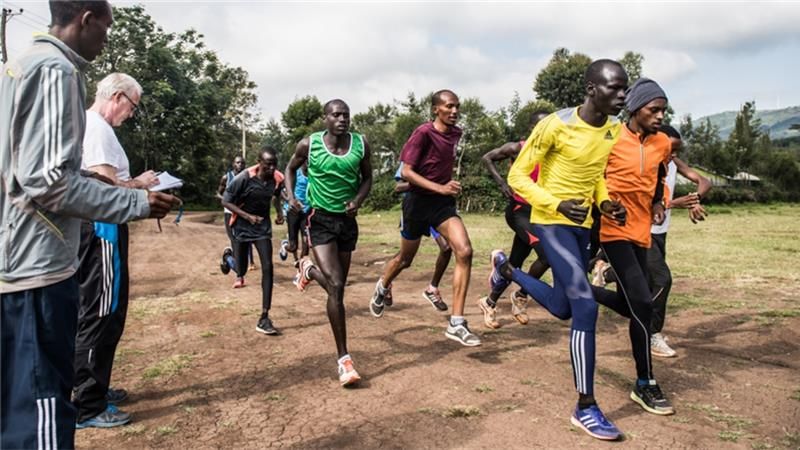
A decade ago, Yiech Pur Biel fled from South Sudan alone, his parents and siblings having disappeared in the chaos of war.
He arrived in Kakuma, Kenya, in 2005, and has been living as a refugee ever since. He started to run, a sport that gave him a sense of belonging in his new home - and he excelled. Last month, Biel was selected to compete in the 800 metres event as part of the first-ever Olympic refugee team.
Already, he says, his life has changed.
"I feel a lot of pressure in so many ways," Biel told Al Jazeera on a break from a training session in the southwestern Kenyan town of Ngong.
"It's the first time there has ever been a refugee team, so I think it will have a big impact. I want it to help remove the title 'refugee' and show that we are more than that; it is just a small part of us ... So many refugees are looking at the Games and look up to us, so I [want to] do my absolute best."
Next month's Olympics in Rio de Janeiro, Brazil, will mark the first time in history that an all-refugee team has competed at the Games. While refugee athletes have participated in past Olympics, they have either done so as part of the delegations of their new countries, or under a special "independent" category.
Composed of 10 athletes from the Middle East and North Africa, the refugee team has an unprecedented opportunity to achieve victory on the world's biggest sporting stage. At the same time, these athletes must grapple with the intense pressures of competing at an elite level, while also being catapulted into an unexpected global spotlight.
With the Games still a month away, team member Yusra Mardini, a Syrian swimmer who is training in her host country of Germany, has already had to decline more than 700 media requests, a spokesperson said.
And Rami Anis, another Syrian swimmer on the refugee team who is training in his host country of Belgium, has felt the strain of having to repeatedly relive his refugee journey, his coach told Al Jazeera.
"This is actually what he said yesterday: 'When I arrived in Belgium, I did my best to forget, but everyone is just forcing me to relive everything,'" coach Carine Verbauwen said, noting Anis has been reluctant to speak in detail about his story, as he still has family living in Syria.
"The little things I have heard have convinced me that it has left big scars," Verbauwen said. "[While] he wants to represent the Syrian refugees ... he does not want to relive the whole thing."
When the International Olympic Committee first unveiled the Olympic refugee team in early June, the organisation described it as a "symbol of hope" that could draw global attention to the magnitude of the ongoing refugee crisis - the worst since World War II.
The athletes, who are all training in their host countries, will march under the Olympic flag to the Olympic anthem in Rio, and they have their own crew of staff and coaches.
Along with Mardini, Anis and Biel, the 2016 refugee team will consist of Ethiopian marathoner Yonas Kinde, who is living in Luxembourg; South Sudanese runners James Nyang Chiengjiek, Anjelina Nadai Lohalith, Rose Nathike Lokonyen and Paulo Amotun Lokoro, who are living in Kenya; and judo practitioners Yolande Bukasa Mabika and Popole Misenga, who hail from the Democratic Republic of the Congo and are living in Brazil.
With their lives already in an uncertain state, the added pressures of participating in the Olympics - combined with the heavy media emphasis on the world's first Olympic refugee team - could affect their performance in different ways, experts say.
Having been announced just last month, the team also faces a time crunch.
"Given their circumstances ... some might have been exposed to violence, forms of marginalisation, and limited access to coaches and resources," said Robert Schinke, the Canada Research Chair in Multicultural Sport and Physical Activity, a federal government appointment aimed at finding culturally relevant approaches to motivate athletes.
Olympic preparation typically begins four years before the Games, and skills are layered over the ensuing years to ensure peak competency, he told Al Jazeera.
"Even then, the challenges to perform centre stage are significant. These refugee athletes will be acclimating to their Olympic opportunities in a relatively short time, with perhaps new coaching and new sport science resources," Schinke said.
"Perhaps the personal resilience of having overcome [personal trauma] might stand these athletes in good stead in terms of their desire to persist. However, major Games competencies take time to acquire."
While many Olympians from teams around the world are dealing with an influx of interview requests, the deluge has been even more intense for the refugee athletes, he acknowledged.
"Overexposure to the media will leave most any athlete emotionally flat and unfocused," Schinke said. "Layered on to this challenge, the worldwide media might not understand the cultural identities of the refugee athletes they are interviewing. Questions might then become obtrusive, placing the athletes in awkward situations, at a time where they are vulnerable."
Judy Van Raalte, a sports psychologist based in the United States, pointed out that the Olympic refugee team differs from others in that its athletes come from diverse national backgrounds and might speak different languages.
While this could put them at a disadvantage in some respects, the team may also have an edge over other teams because of their past ability to overcome significant personal adversity, she told Al Jazeera.
"Many of [the refugee athletes] have lived through worse and have proven to be resilient," Van Raalte said. "The challenges of the past can make the stresses of the Olympic Games an enjoyable type of stress, or at least a manageable one."
As the refugee team is the first of its kind, it is difficult to predict how the athletes will fare once the Games have ended, Van Raalte added.
The IOC has stated that it will "continue to support" the refugee athletes even after they leave Rio, but asked for details of what that support would look like, a spokesperson told Al Jazeera that the specifics were "still being discussed between the IOC and the entourage of the athletes".
It remained "too early" to say whether there would be an Olympic refugee team in the future, the spokesperson added.
Lohalith, one of the South Sudanese runners training in Kenya, said everything has happened so quickly that she has not had much time to consider what lies ahead. Having being separated from her family more than a decade ago, she has not seen them since.
"Maybe they will see me at the Olympics ... I did not expect that I would ever make it this far," Lohalith told Al Jazeera.
"The spotlight is something that I don't think about that much, but maybe that is because I haven't understood how big it is yet - this all happened so fast, I can't believe it."
After the Games end, Schinke said, most Olympians go through a "readjustment period", as life afterwards cannot possibly match the heightened emotional experience of competing on the world stage.
"Compounded on to this readjustment phase, the question is what becomes of these particular athletes after Rio? Where will they live? What will become of their athletic identities? Will these athletes have a bright future after Rio?" he asked.
"Though an Olympic experience is defining, it is meant at best to be a springboard to further peak experiences throughout a life ... Ideally, there will be a future in place for these refugee Olympians."
•Culled from aljazeera.com
Source Daily Sports
Posted July 4, 2016
You may also like...

Man Utd Gay Group Demand Apology Over Disabled...

EPL: Chelsea crush Southampton in five-goal thriller

Nigeria to host 13th ECOWAS African Wrestling tournament...

Osimhen Sees Red In Europa League Clash
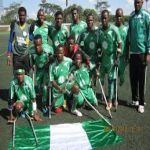
Amputee Nations Cup: Special Eagles Fight Back To...

Liverpool Legend Showers Praises on Ndidi

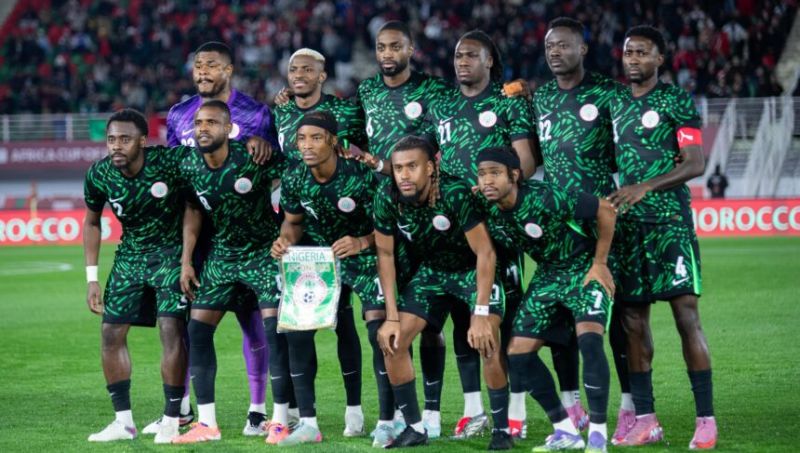 NOC's Gumel hails Super Eagles' Triumph of Character, Transformation to secure AFCON bronze medal
NOC's Gumel hails Super Eagles' Triumph of Character, Transformation to secure AFCON bronze medal 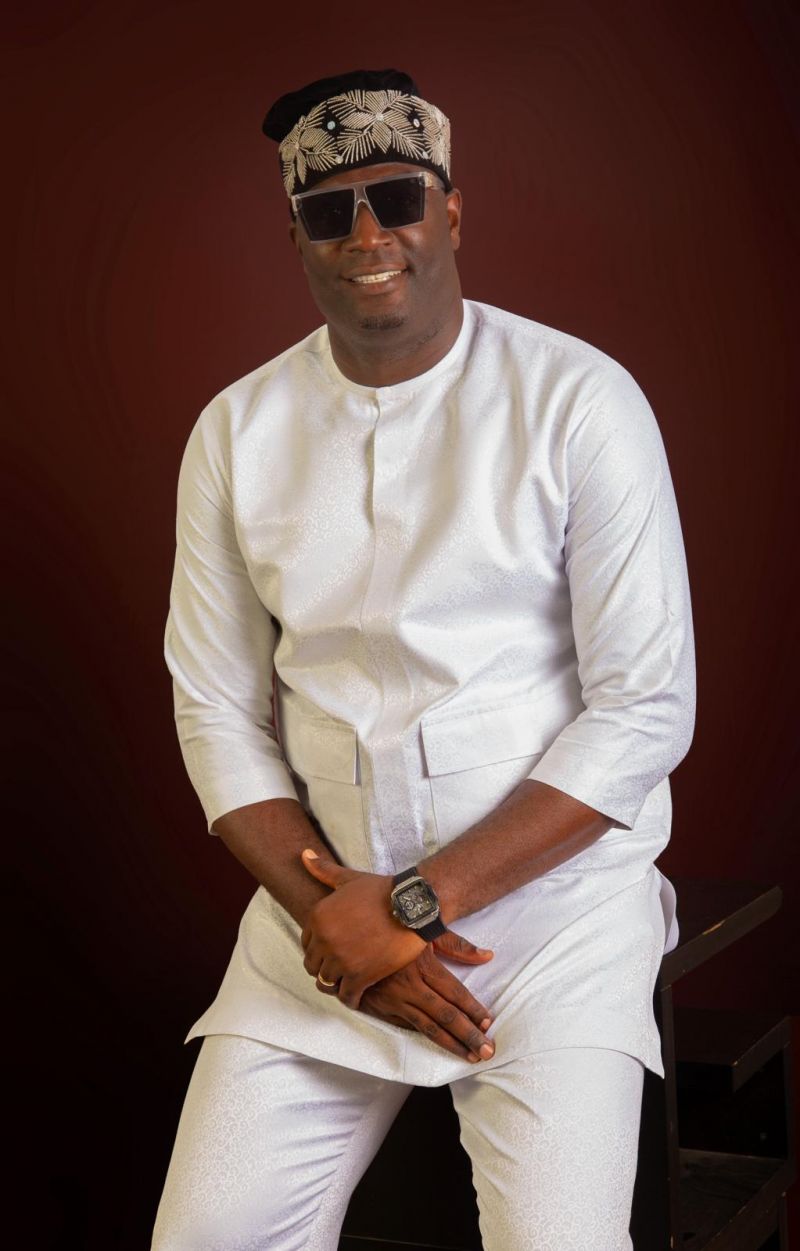 Significant milestone as Nigeria's Gumel welcomes Oyedeji into IOC
Significant milestone as Nigeria's Gumel welcomes Oyedeji into IOC AFCON 2025 Final: CAF Referees' Committee On Trial
AFCON 2025 Final: CAF Referees' Committee On Trial 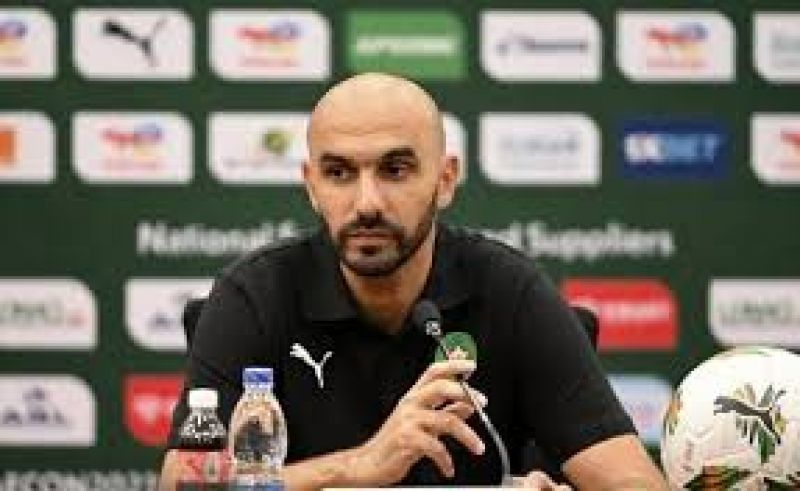 Regragui slams referee for poor final officiating
Regragui slams referee for poor final officiating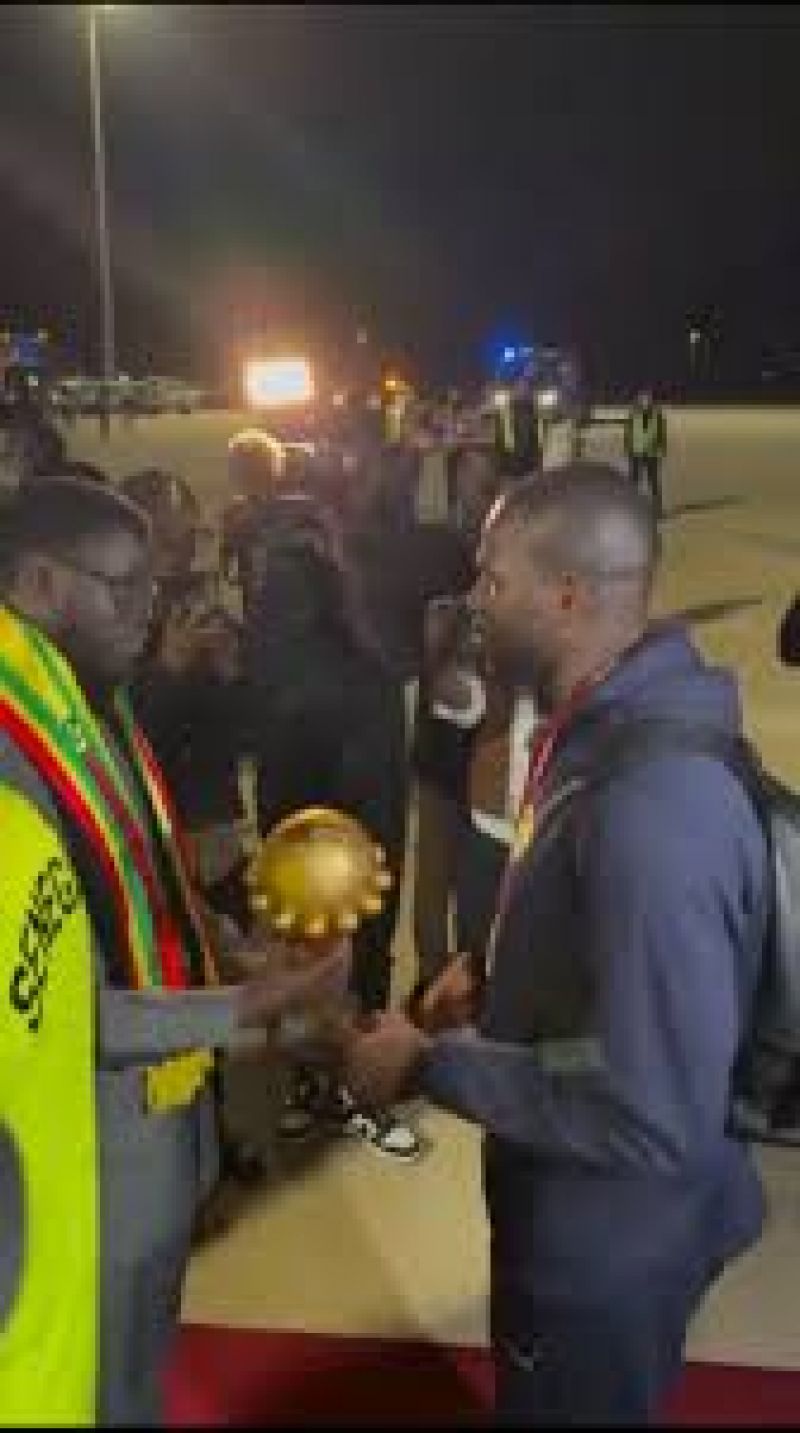 Senegal team returns home, presents AFCON trophy to President
Senegal team returns home, presents AFCON trophy to President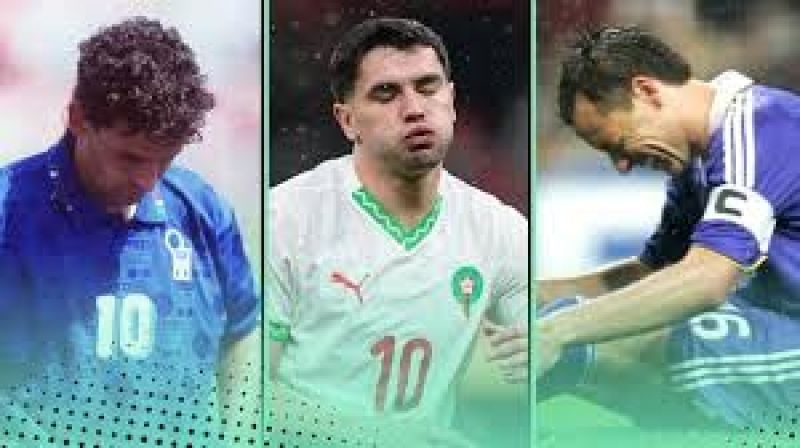 FULL LIST: 10 players who missed crucial penalties on football's biggest stages
FULL LIST: 10 players who missed crucial penalties on football's biggest stages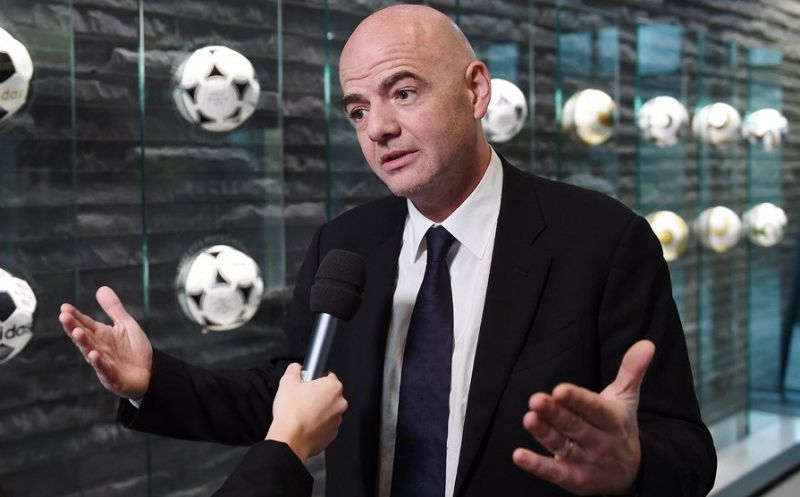 ‘We witnessed unacceptable, ugly scenes’ - FIFA slams Senegal, praises Morocco over AFCON 2025 final
‘We witnessed unacceptable, ugly scenes’ - FIFA slams Senegal, praises Morocco over AFCON 2025 final_1.jpeg) What Super Eagles And Others Received From 2025 AFCON Prize Pool
What Super Eagles And Others Received From 2025 AFCON Prize Pool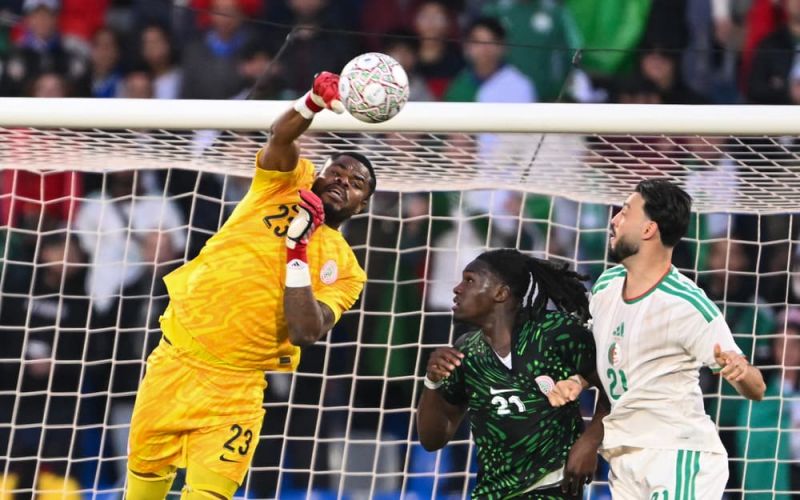 Calvin Bassey, Nwabali selected for 2025 AFCON Best XI
Calvin Bassey, Nwabali selected for 2025 AFCON Best XI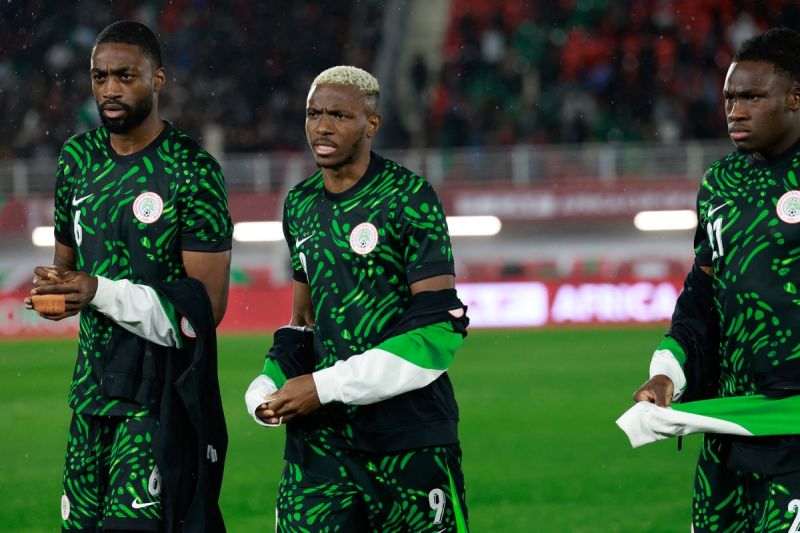 Super Eagles enjoy big jump in FIFA Ranking after 2025 AFCON run
Super Eagles enjoy big jump in FIFA Ranking after 2025 AFCON run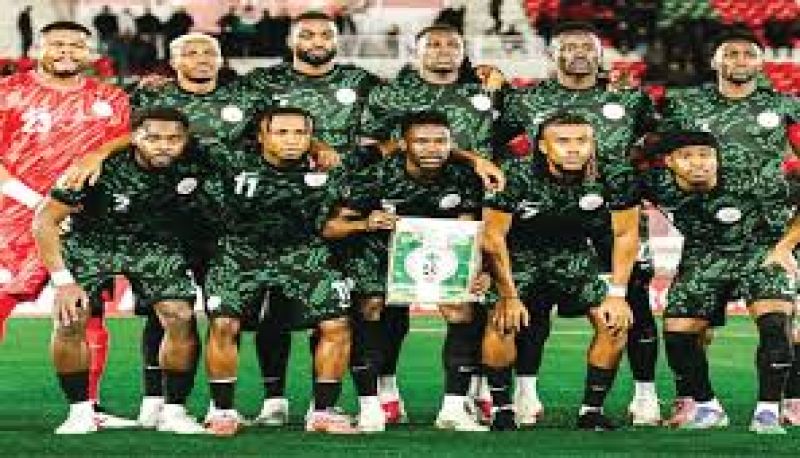 Ogbu hails current Eagles as Nigeria’s greatest
Ogbu hails current Eagles as Nigeria’s greatest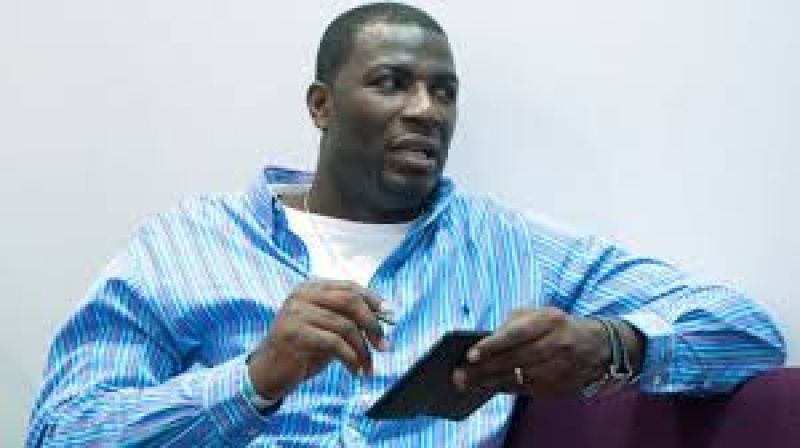 Ahmedu backs Oyedeji to steady Nigerian basketball
Ahmedu backs Oyedeji to steady Nigerian basketball Rangers International going, going . . . (63,485 views)
Rangers International going, going . . . (63,485 views) Amaju Pinnick: A cat with nine lives (54,778 views)
Amaju Pinnick: A cat with nine lives (54,778 views) Second Term: Amaju Pinnick, Other NFF Heavyweights Home to Roost •How Pinnick Broke the Jinx (52,675 views)
Second Term: Amaju Pinnick, Other NFF Heavyweights Home to Roost •How Pinnick Broke the Jinx (52,675 views) Current issues in Nigerian sports: Matters arising (52,341 views)
Current issues in Nigerian sports: Matters arising (52,341 views) Sports Development: Zenith Bank on the zenith (52,267 views)
Sports Development: Zenith Bank on the zenith (52,267 views) Missing $150,000 IAAF Grant: Solomon Dalung’s Hide and Seek game (52,182 views)
Missing $150,000 IAAF Grant: Solomon Dalung’s Hide and Seek game (52,182 views) Gov. Abdullahi Ganduje’s solid footprints, commitment to sports development in Kano State (52,044 views)
Gov. Abdullahi Ganduje’s solid footprints, commitment to sports development in Kano State (52,044 views) NFF Presidency: Pinnick, Maigari, Ogunjobi, Okoye in Battle for Supremacy (51,600 views)
NFF Presidency: Pinnick, Maigari, Ogunjobi, Okoye in Battle for Supremacy (51,600 views) Olopade, BET9A wave of revolution in NNL (50,778 views)
Olopade, BET9A wave of revolution in NNL (50,778 views) Commonwealth Games 2018: Shame of Muhammadu Buhari, Solomon Dalung (49,305 views)
Commonwealth Games 2018: Shame of Muhammadu Buhari, Solomon Dalung (49,305 views) Ibrahimovic’s Man U exit: Whose decision is it? And in whose interest? (47,697 views)
Ibrahimovic’s Man U exit: Whose decision is it? And in whose interest? (47,697 views) John Mikel Obi: Segun Odegbami’s Outrageous Call! (47,165 views)
John Mikel Obi: Segun Odegbami’s Outrageous Call! (47,165 views)